A growing Black vegan movement plants its flag
These farmers not only work the fields, but the court system too
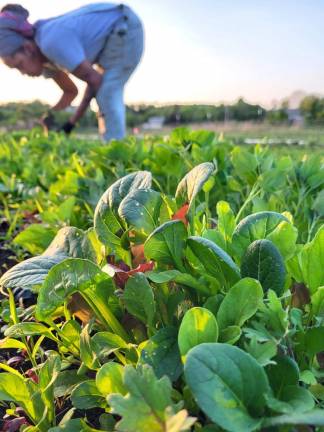
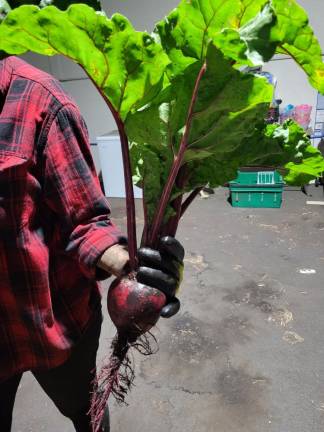
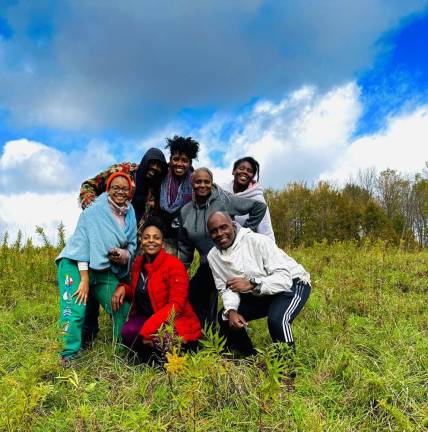
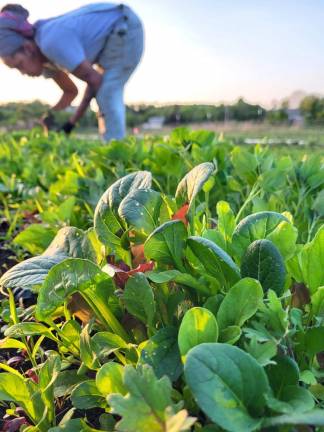
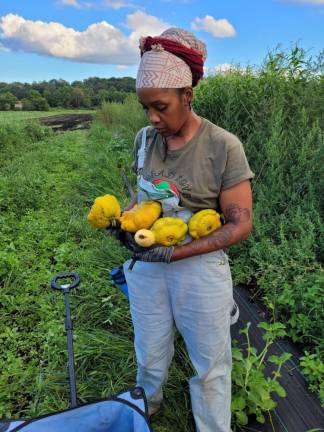
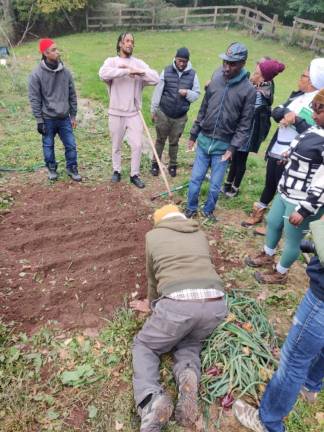
I’ve been running the beet race. Or rather it’s been running me — the race to get spring transplants into the ground always feels like a sprint you just can’t win. (And if you’re wondering why I’m not direct seeding, let’s pop the kettle on and have a long chat about cutworms.)
But imagine running that race, or that race running you, not just every spring. Imagine, if you will, living your whole life in that constant state of struggle. Cutworms and all.
Maybe then you can begin to contemplate, in some small way, what being a Black farmer in America is like today.
Nadia and Omowale Adewale are founders of Liberation Farm, which recently arrived in the black dirt fields of Chester, NY and also comprises 340 acres in Delaware County, NY. The farmer-activist pair is on mission to not only raise awareness of the uphill battle faced by farmers of color, but do something about it.
I had originally planned to connect with Nadia on May 8, which as it turned out, was a momentous day for Liberation Farm. They won their appeal against the U.S. Department of Agriculture Farm Service Agency (FSA), a government body that exists to provide important access to capital to help farmers start or expand their operations. The low-interest loans are intended for farmers who can’t get credit elsewhere and are supposed to be relatively easy to get. But in New York, Black farmers like the Adewales are denied these loans more than three times as often as white farmers, according to USDA data the Adewales obtained through the Freedom of Information Act.
Discriminatory lending by the USDA has been the subject of class action lawsuits over the past couple decades by Black, Native American, Hispanic and women farmers. But Black farmers are denied loans at the highest rate of any group, according to an NPR analysis of 2022 USDA lending data. Lack of access to those funds not infrequently leads to farmers losing their land.
With the help of a pro-bono lawyer, the Adewales went to court to challenge the FSA decision, knowing full well that only about one in six appeals is successful.
A mix of excitement and exasperation is evident in Nadia’s voice as she explains their hard-won legal victory. The decision — which allows the Adewales to reapply for a loan — is the latest chapter in the long story of the couple’s struggle for land sovereignty.
“We lost our last property, so we had to find another place to farm,” said Nadia, explaining how Liberation Farm ended up at the Chester Agricultural Center early last season. The Adewales needed a quick fix, and the Center’s terms and timing were just right. A few months after starting at the Agricultural Center, the Adewales’ lawyer and longtime advisor connected them with another property in Delaware County. They are now farming in both locations, as well as hosting skill-building workshops, weekend retreats, camp-outs, vegan brunches and group exploration hikes.
But I sensed there was more to this story of displacement. When pressed, Nadia hesitated.
“We experienced racism,” began Nadia, slowly and calmly. The land that they were on previously, in Jeffersonville, NY, had a trail running through the front of the property. They had people crisscrossing their land on ATVs and snowmobiles. The neighboring landowner wanted to continue public use of the trail, but the couple objected to this use of their private property. They were told, “You don’t know how we do things around here, and you’re here by yourself,” Nadia recalled. Ultimately, the neighbor took the couple to court and they couldn’t afford to keep fighting for the land.
Land sovereignty is a topic covered before in this column. The concept may seem basic; the right to do what you want on your own land is one many of us take for granted. But as the Adewales’ land loss demonstrates, that security is far from universal.
“It’s hard to have food sovereignty if you don’t have land sovereignty,” said Nadia. It is this core principle that shapes Liberation Farm’s work, from the crops they choose to grow to the Black farmers’ cooperative they are determined to build.
The image of a beet adorns Liberation Farm’s logo, indicating how much this ruby-colored root means to their identity. While the Adewales run an evolving, diversified operation that includes potatoes, tomatoes, squash, peppers, kale and even okra last year, beets will always be on their crop roster because of its potential protective effect against heart disease — which disproportionally affects Black communities. “We want to pour into the community, and not extract from it,” said Nadia.
Beyond their farm operations, the Adewales co-founded Black Veg Fest, an annual festival dedicated to promoting the healthy, sustainable and compassionate lifestyle of veganism in the Black community. Omowale, author of Brotha Vegan (2021) and An Introduction to Veganism & Agricultural Globalism (2015), is a leader of the growing Black veganism movement, which is gaining steam as influencers teach followers how to cook, eat, and even travel while vegan. Since its inception in 2018, the festival has been held during Black August, an annual commemoration of freedom fighters and political prisoners. This year’s festival is Aug. 17 in Brooklyn.
While still learning the soil at both their Delaware County and Chester sites, the Adewales are putting down roots of all kinds, joining forces with likeminded regional groups like Black Farmers United and North East Farmers of Color. “Once you have a community that works together,” notes Nadia, “it’s harder to break.”
Somehow, the Adewales also find time to educate Black youth about farming and the food system. During a regenerative gardening workshop at the Weeksville Heritage Center in Brooklyn last year, one of the young men in the class was so inspired that he said he wanted to open a grocery store when he got older. To Nadia, this was the seed of true freedom: young minds realizing they can and should be involved in the food system — cultivating what they want, not just what they are given.